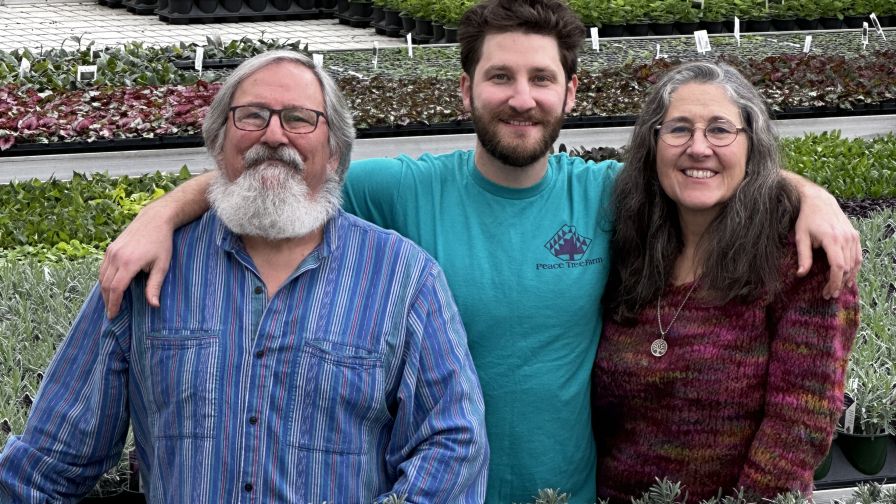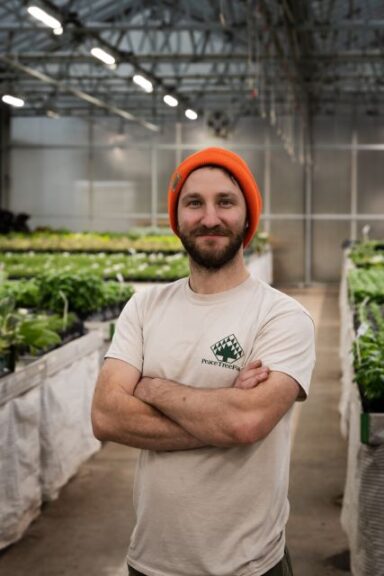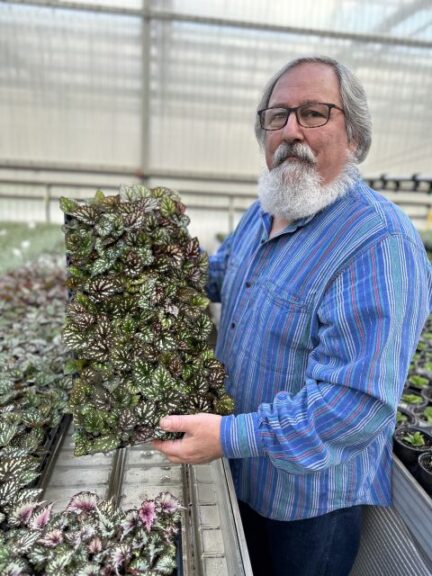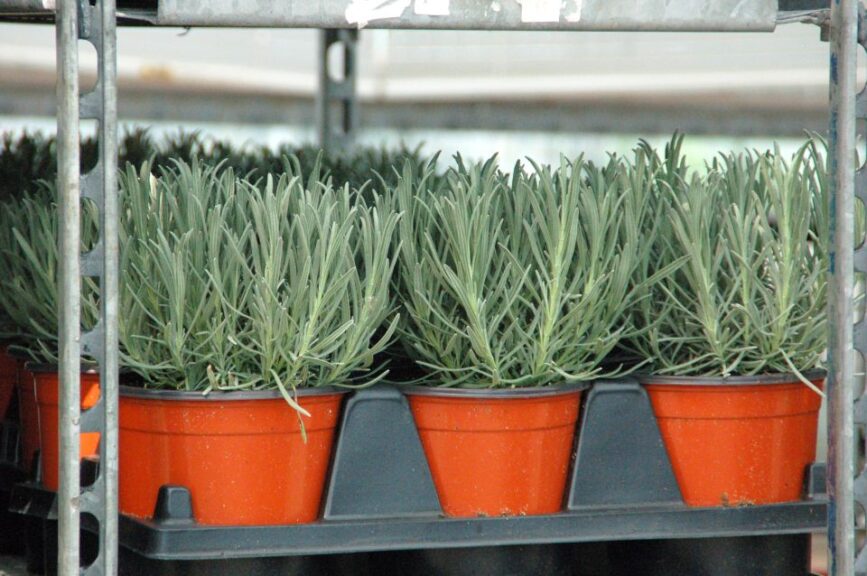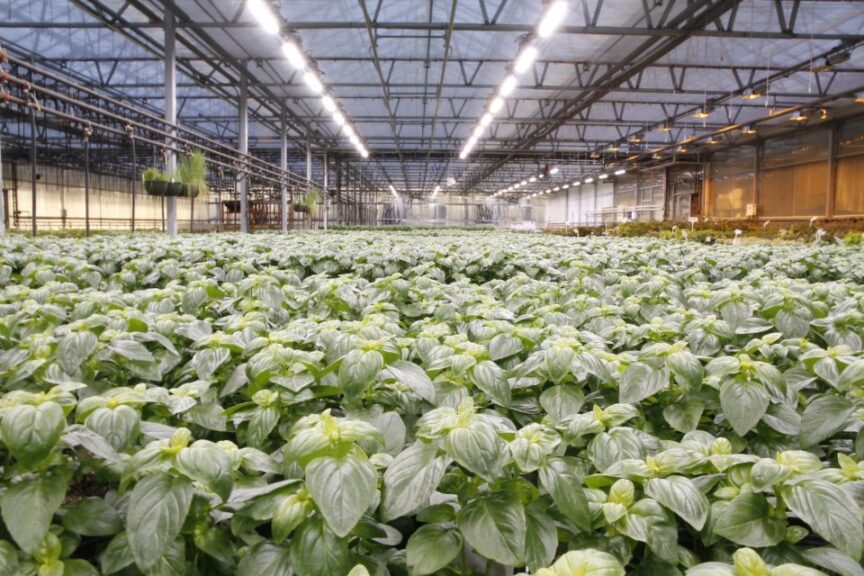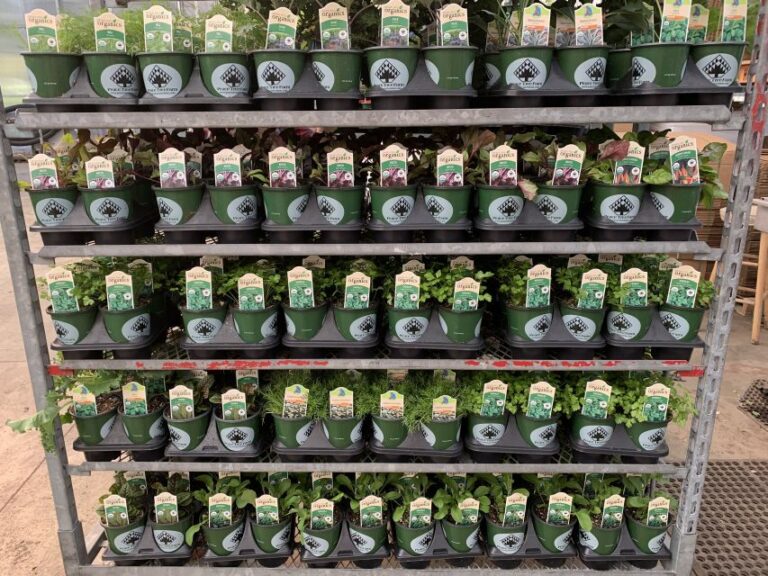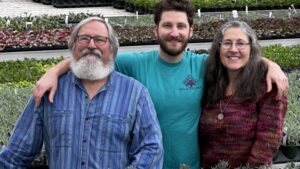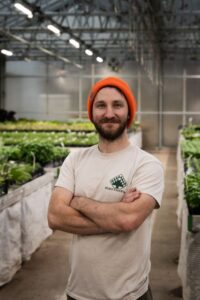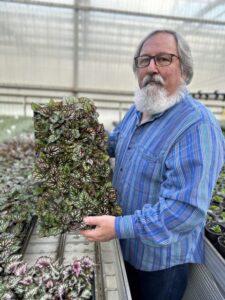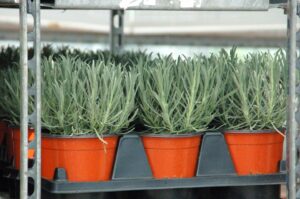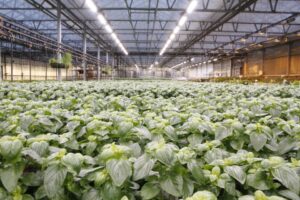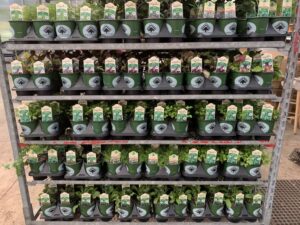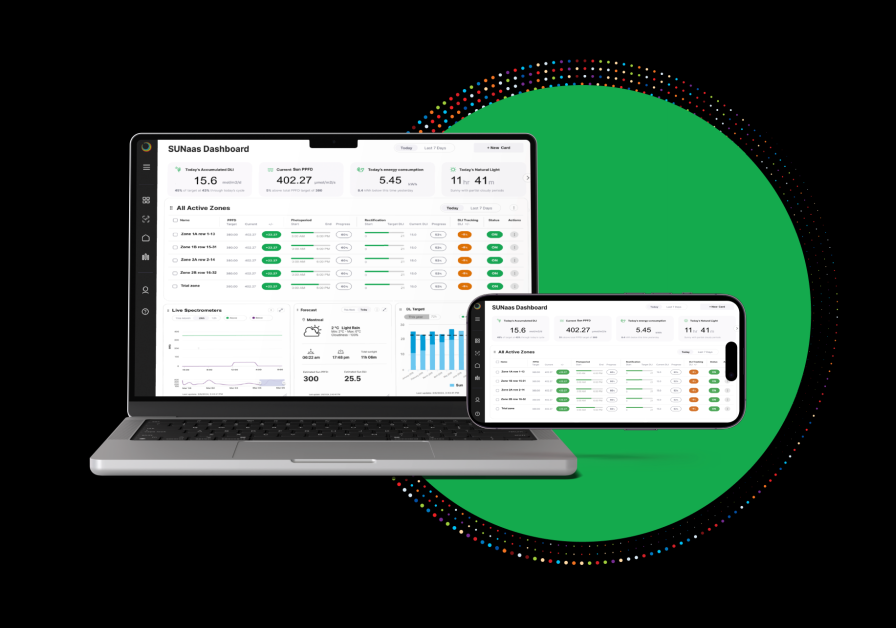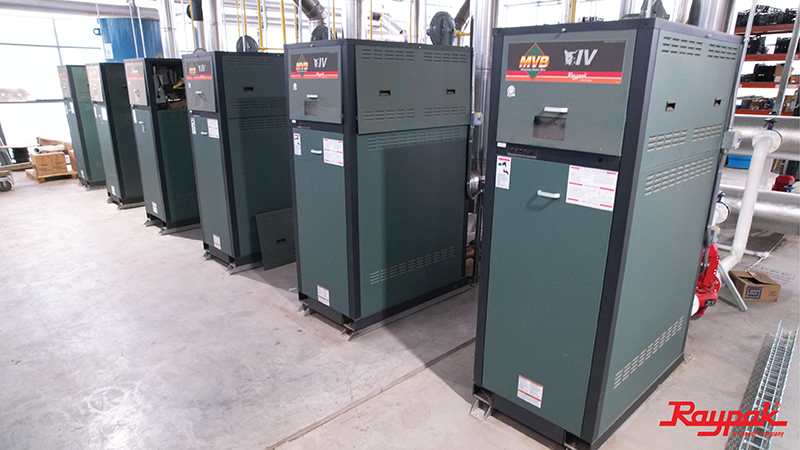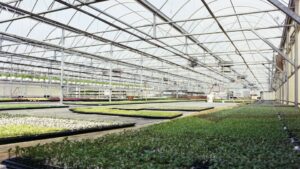How Peace Tree Farm Has Set a Path for the Future
The team at Peace Tree Farm always seems to be in a state of proactive planning and transition, which is a good thing in an industry where it’s all too easy to be complacent and let external forces dictate your success. Whether it’s transitioning to the next generation of ownership, adjusting its crop mix to keep up with customer demands, or updating technology that allows for more sustainable production practices, every change made at Peace Tree Farm has a purpose.
It starts with the ideology of Lloyd and Candy Traven, who purchased the Peace Tree property in 1983 with the goal of building a small farm that could make a big impact. It extends to their son Alex, whose intent is to carry on the legacy that Lloyd and Candy created while bringing in his own voice and his own mission.
Stepping Back and Stepping Up
A succession plan doesn’t mean simply handing the keys over to the next generation and saying, “Have at it.” It means taking a hard look at the value (both real and perceived) of your company, and how the roles from one generation to the next need to change. For Lloyd, that meant attending a seven-week virtual seminar on all the steps involved in the process.
“It really opened my eyes to a lot of things, including the fact that whatever I think my company is worth means nothing,” Lloyd says. “The only person whose opinion matters is the person who wants to buy it.”
This is not to say that Lloyd, or Alex, is looking to sell to an outside company. They simply know the appeal that an operation like Peace Tree might offer: prime location near several major metropolitan areas, current production of crops high on consumer interest lists, etc.
Putting aside the financial and value aspects of a transition, it’s also about identifying how mindsets need to change.
“I’m at the point right now where my main role is stepping back, which is not easy,” Lloyd says. “I’m always talking to our team, but I do not want to interfere or give them a different message than Alex has already given them. I need to stay at the 30,000-foot level and focus on the steps I can take to set Alex up for success 20 years down the road with a solid business and a clear vision.”
As Head Grower turned General Manager, Alex’s new leadership position also comes with a higher view of the operation.
“My job has become a lot more focused on building and managing our team, writing an employee handbook, and setting a personnel management approach that is quite honestly much different than what we’ve done in the past,” Alex says. “It’s great that we’ve been able to build an attractive business where people seek us out to work here, but it also means we need to maintain a focus on company culture that’s built on clear expectations. If we want to hit a point where I can manage from a high level and Lloyd and Candy can completely detach themselves from the business, then I need to know I have a fully developed team I can count on.”
New Products, New Approaches
Another transitional approach Peace Tree Farm is taking is its crop and product mix. During the height of the COVID-19 pandemic, the company went even more heavily into USDA Certified Organic edibles. Since then, edibles still drive the bus, but diversity is the ultimate goal.
“Everything we do is with an eye toward killing seasonality,” Lloyd says. “We want to offer a broad mix of everything from ornamentals and edibles to lavender and figs, two of our most popular crops today. We no longer depend on spring to stay in business, which is wonderful.”
Peace Tree has also greatly diversified its customer base to include independent garden centers, major regional grocers like Wegmans, and online and on-air retailers, similar to QVC and Home Shopping Network. Some of the latter group will even arrange large-scale contracted production orders, which means orders are processed and paid for well in advance.
“That was a pretty big mental switch, because we went from a mindset of having something available for everyone at all times, to never having to fill a single plant order on availability because every plant is already sold,” Alex says. “By planning for those big orders in advance, we don’t have to worry about how we’re using our space.”
The focus on diversity not only helps Peace Tree avoid putting all its eggs into one customer basket, it also helps the company stay ahead of the market.
“We depend on that, and we take pride in being ahead of the curve on everything from houseplants to succulents,” Lloyd says. “Plant popularity often comes in waves, and the bottom can drop out quickly, so we want to be prepared to back out before that happens.”
One more area where Peace Tree is diversifying is a new fulfillment program for trial packs for several major breeders.
“We’re just getting started on that, and it will be limited at first, but it involves working with some major companies,” Lloyd says of the fulfillment program. “We’re built to do those kinds of exactly scheduled programs.”
The COVID Effect
When the early stages of the COVID-19 pandemic led to significant shutdowns in states like Pennsylvania, growers like Peace Tree Farm were hit with major uncertainties about what to do with their fresh product.
“Wegmans, one of our biggest customers, first told us they were struggling enough to simply supply staples like milk, bread, and toilet paper. The last thing they were concerned with was organic herbs,” says Lloyd Traven. “But they did tell us we’d be back in the mix soon, and when that time came, they were giving us orders that were five times bigger than we’d ever seen.”
Alex describes it as a whiplash effect, where one moment everything was cancelled, and the next moment every plant was bought and paid for.
“We were lucky because we were the only source of organic edibles in the area,” Lloyd says. “We launched what we called the Resilience Program, and the next thing we knew, we were getting orders from everywhere from California to Chicago. Many of these buyers are still customers today.”
Investing in Alternative Energy
Peace Tree Farm also has a few major technology projects underway. One is a large-scale solar power installation consisting of a roof array on its production building, and ground arrays being installed on a hillside between the greenhouse and a retention pond.
“We jumped on the LED bandwagon a long time ago, and we’ve also been rewiring our entire facility,” Lloyd says. “During that time, we’ve touted our sustainable and environmental approach to growing. Now we’re investing even more to make that happen, and it’s a huge step in our pursuit of carbon neutrality.”
Once this project moves forward, the next step will be a focus on alternative fuels for heating, namely hydrogen.
“One of our local factories manufactures chlorine, and one of their byproducts is hydrogen that is liquified and shipped as a fuel source,” Lloyd says. “We’ve been working with our boiler company on a plan to install hydrogen tanks. We’re not there yet with the infrastructure, but things like oil, natural gas, or wood burning are not options for us, so we want to be ready to quickly pull the trigger on hydrogen.”
Peace Tree was also one of the first growers in North America to generate pure hydrogen peroxide for water disinfection on site.
“We tried ozone, but it just wasn’t the right technology for us,” Alex says. “With hydrogen peroxide, all we’re doing is using water and electricity and pulling oxygen from the air. Our partners HPNow in Denmark pretty much run the machinery for us; it’s one of those rare cases where the technology can do everything that was promised, with little intervention from us.”
Biologicals Program Continues to Grow
One area of focus at Peace Tree that is certainly not new, but is constantly evolving, is its biologicals program. Lloyd and Candy Traven were trendsetters, launching the program in 2006 at a time when most in the industry followed the same schedule of spraying at a set time to kill everything in sight. But even their approach was built based on little information and few materials available.
“Since Alex came on board, he’s taken our biologicals program to such a sophisticated level that I just marvel at it,” Lloyd says. “When I walk through the greenhouse, all I see is beneficials. I can’t find a single whitefly or thrips.”
For Alex, it’s been a long learning curve, and an approach that requires attention to detail and skilled people.
“I’m really reliant on banker plants, which aren’t for everyone,” Alex says. “But we’ve been able to make them work, and I’ve since handed over the scouting and managing of the program to others on our team.”
The program is certainly not without its challenges, including working with buyers who may have a zero-tolerance policy for any insect they find on a plant, including beneficials.
“There’s an education process for sure, but it often leads to great conversations with our customers,” Alex says.
It also leads to new employees, many of whom come to work at Peace Tree Farm because they are attracted to the company’s sustainable approach to crop protection.
As Alex continues his transition into running the day-to-day operations at Peace Tree Farm, it doesn’t mean Lloyd is going away any time soon, and Candy certainly isn’t either — as CFO, she is still the one to sign off on major expenses and handle many HR-related duties. The transition has allowed Lloyd to spend more time in other areas and continue his role as a thought leader in the industry. He recently joined the board of directors for AmericanHort’s Horticultural Research Institute.
“I’m not going to run out of things to do,” Lloyd says. “But Alex is the future of Peace Tree Farm, and I’m excited to see where he takes us.”





